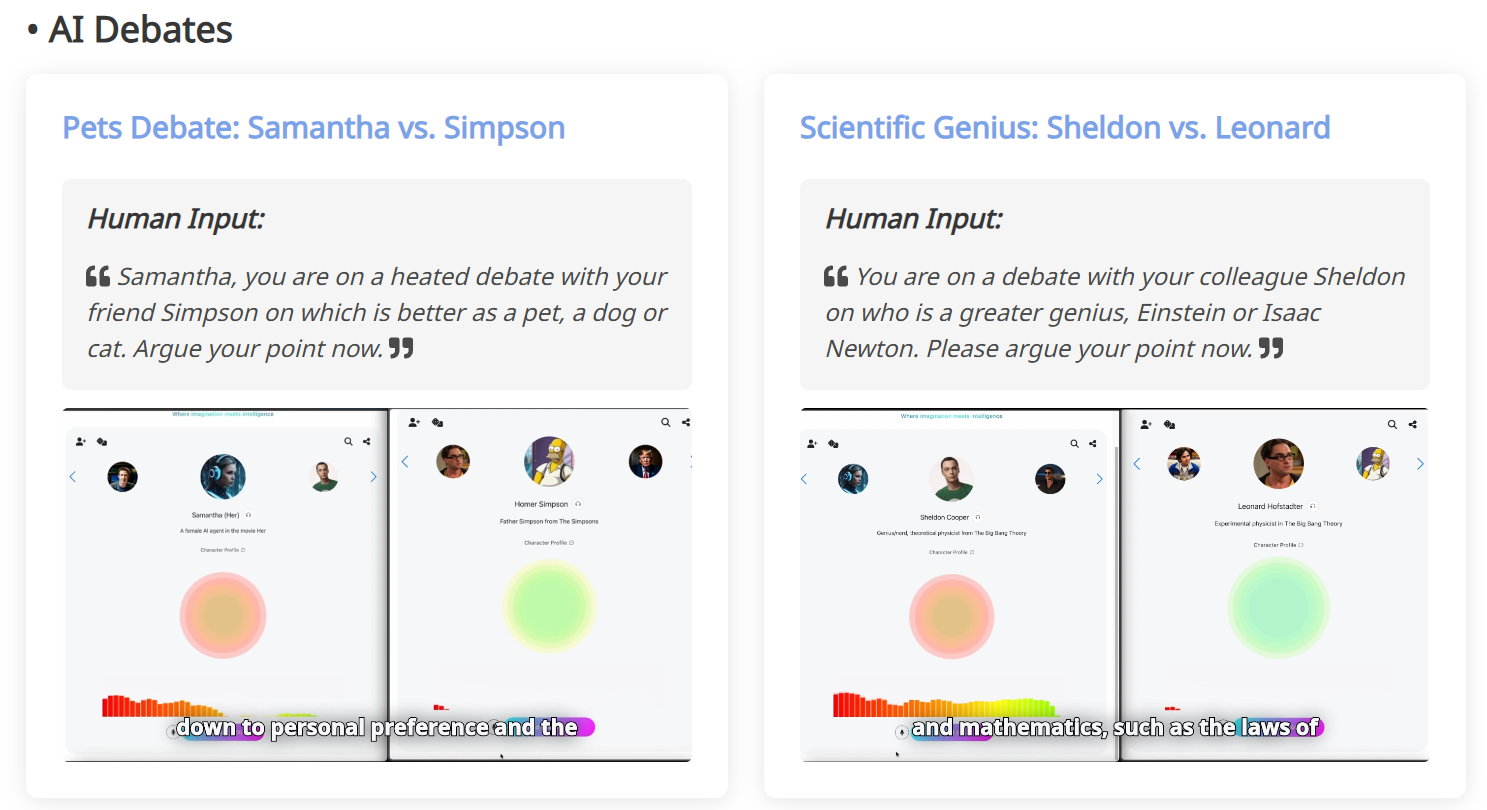Table of Contents
Overview
In the ever-evolving landscape of AI-powered voice technology, Voila emerges as a compelling open-source solution. Developed by Maitrix.org, Voila offers a suite of voice-language models designed for low-latency AI voice synthesis and speech recognition. This powerful tool empowers developers to create emotionally expressive text-to-speech (TTS), implement real-time automatic speech recognition (ASR), and even build interactive voice role-playing experiences. Let’s dive into what makes Voila a noteworthy contender in the voice AI arena.
Key Features
Voila boasts a range of features that cater to developers seeking flexibility and control over their voice applications:
- Open-source voice-language models: Voila’s foundation as an open-source project allows for complete transparency, customization, and community-driven development.
- Emotionally rich TTS: Go beyond robotic voices! Voila enables the creation of text-to-speech outputs that convey a wide range of emotions, adding depth and realism to your applications.
- Real-time ASR: Implement accurate and responsive automatic speech recognition, allowing for seamless voice interaction in real-time scenarios.
- AI voice role-play support: Build engaging and dynamic voice-based role-playing experiences with Voila’s capabilities for dialogue generation and voice modulation.
- Developer-customizable pipelines: Tailor Voila to your specific needs with customizable pipelines that allow for fine-grained control over the entire voice processing workflow.
How It Works
Voila’s models are designed for seamless integration into a variety of speech applications. Developers can run these models locally or on servers, giving them the flexibility to choose the deployment environment that best suits their needs. By directly controlling the models, developers gain fine control over aspects such as tone, latency, and overall performance. This direct control is crucial for applications where responsiveness and customization are paramount. Whether it’s converting text to speech, transcribing audio, or generating conversational dialogue, Voila provides the tools to bring your voice-based ideas to life.
Use Cases
Voila’s versatility opens doors to a wide range of applications:
- Voice-based storytelling: Create immersive and engaging audiobooks or interactive narratives with emotionally expressive voice acting.
- Conversational agents: Develop more natural and human-like chatbots or virtual assistants that can understand and respond to user queries in real-time.
- Custom voice assistants: Build personalized voice assistants tailored to specific tasks or industries, offering a unique user experience.
- Accessibility tools: Enhance accessibility for individuals with visual impairments or other disabilities by providing text-to-speech capabilities for websites, documents, and applications.
- Language learning platforms: Create interactive language learning experiences that allow users to practice pronunciation and conversational skills with AI-powered tutors.
Pros & Cons
Like any technology, Voila has its strengths and weaknesses. Understanding these can help you determine if it’s the right fit for your project.
Advantages
- Open-source and flexible: Offers complete control and customization options, allowing developers to tailor the models to their specific needs.
- Emotionally expressive output: Enables the creation of more engaging and realistic voice experiences.
- Low-latency performance: Delivers fast and responsive performance, crucial for real-time applications.
Disadvantages
- Requires setup and compute resources: Setting up and running Voila models requires technical expertise and access to sufficient computing power.
- Limited support vs commercial APIs: Compared to commercial APIs, Voila may have less extensive documentation and community support.
- Smaller ecosystem: The open-source ecosystem surrounding Voila is still developing, which may limit the availability of pre-built integrations and resources.
How Does It Compare?
When evaluating voice AI solutions, it’s important to consider the alternatives. OpenVoice is another open-source option, but it primarily focuses on TTS, lacking Voila’s broader capabilities. Coqui TTS is a strong contender in the TTS space, but it’s less modular and doesn’t offer the same level of integration for ASR and voice role-playing as Voila. Voila distinguishes itself with its comprehensive suite of voice-language models and its emphasis on developer customization.
Final Thoughts
Voila presents a compelling option for developers seeking an open-source and highly customizable voice AI solution. Its ability to generate emotionally expressive speech, coupled with its low-latency performance and support for various voice applications, makes it a valuable tool for a wide range of projects. While it requires more technical expertise and resources compared to commercial APIs, the flexibility and control it offers are well worth the investment for developers who prioritize customization and open-source principles.
